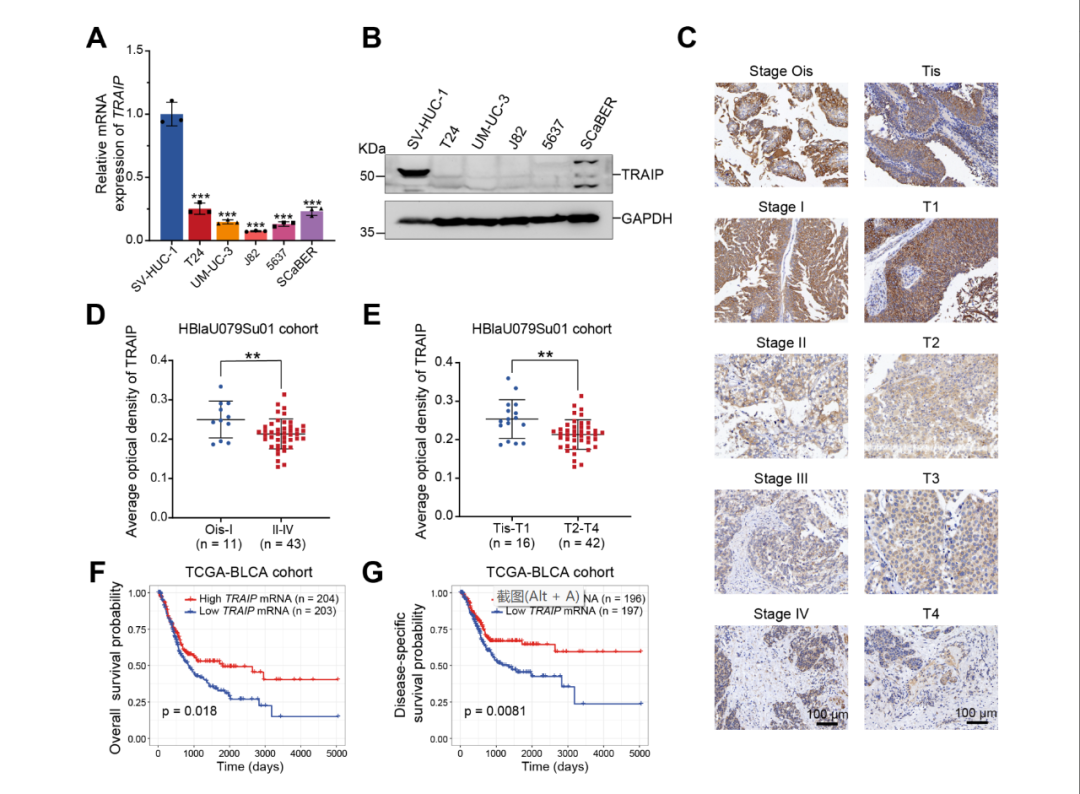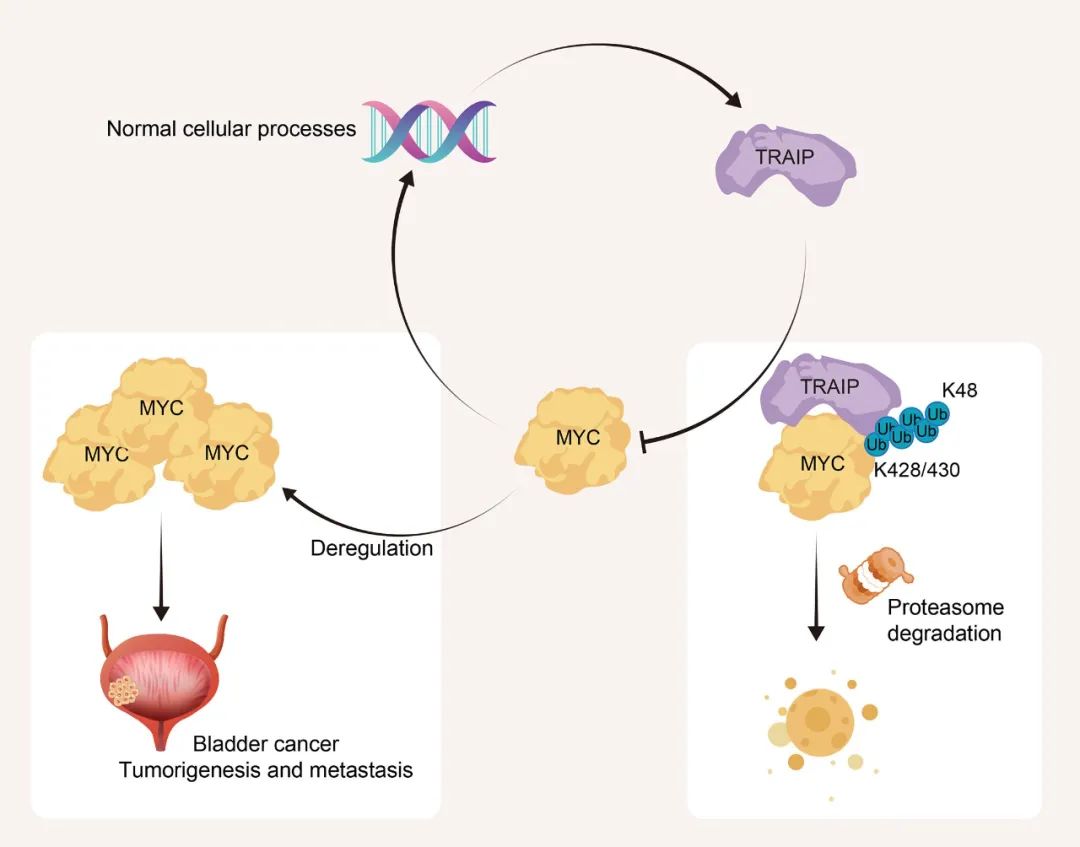

On December 20, 2023, Professor Wang Xinghuan's team from the Department of Urology at Zhongnan Hospital of Wuhan University published a research paper titled "TRAIP suppresses blower cancer progression by catalysis K48 linked polyubiquitation of MYC"[1] online in the classic oncology journal Oncogene. The expression of TRAIP was significantly decreased during the progression of bladder cancer, which was closely related to poor prognosis. This study reveals that TRAIP promotes the degradation of MYC through proteasome pathway by mediating the K48 linked polyubiquitination of lysine residues at positions 428 and 430 in MYC protein, thus inhibiting the development of bladder cancer.

In recent years, there has been inconsistent research on the specific role of TRAIP in various cancers and its impact on tumor progression. The research team first detected the expression level of TRAIP in bladder cancer cell lines and normal urothelial cell lines, and found that the expression of TRAIP in normal cells was significantly higher than that in bladder cancer cells. By analyzing the GSE3167 cohort in GEO database, it was found that the expression level of TRAIP in bladder cancer was significantly lower than that in normal tissues. The study of bladder cancer patient samples also showed that the expression level of TRAIP in bladder cancer tissues was lower than that in normal adjacent tissues. Immunohistochemical staining showed that the level of TRAIP protein gradually decreased with the progression of ATCC stage and T stage of bladder cancer. The data from the TCGA database shows that patients with lower levels of TRAIP expression have poorer survival outcomes.

Further experiments showed that knockdown of TRAIP could promote the proliferation and metastasis of bladder cancer cells, while overexpression of TRAIP significantly inhibited these processes. In terms of mechanism, the research group determined MYC as the direct target of TRAIP through RNAseq and mass spectrometry analysis. TRAIP regulates the protein level of MYC in bladder cancer and inhibits the expression of MYC downstream target genes by mediating K48 linked polyubiquitination on lysine residues 428 and 430 in MYC protein. The analysis of public databases suggests that TRAIP may be a downstream target gene of MYC, and experiments have confirmed that MYC can directly bind to the promoter region of TRAIP and regulate its transcription.

In summary, this study clarifies the mechanism of TRAIP inhibiting the development of bladder cancer by regulating MYC, and provides us with new insights into the etiology, prognosis and treatment of bladder cancer. The first author of this paper is Yu Jingtian, a doctoral student in the Department of Urology at Zhongnan Hospital of Wuhan University. This research has been supported by research funding from the National Natural Science Foundation of China, Hubei Provincial Department of Science and Technology, and Zhongnan Hospital of Wuhan University.
References:
[1] Yu, J., Li, M., Ju, L. et al. TRAIP suppresses bladder cancer progression by catalyzing K48-linked polyubiquitination of MYC. Oncogene (2023).
https://doi.org/10.1038/s41388-023-02922-0
Links:
https://www.nature.com/articles/s41388-023-02922-0